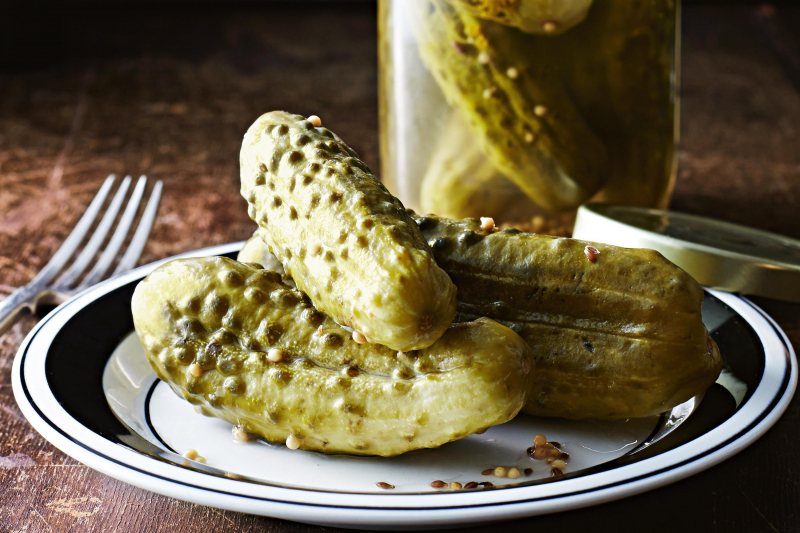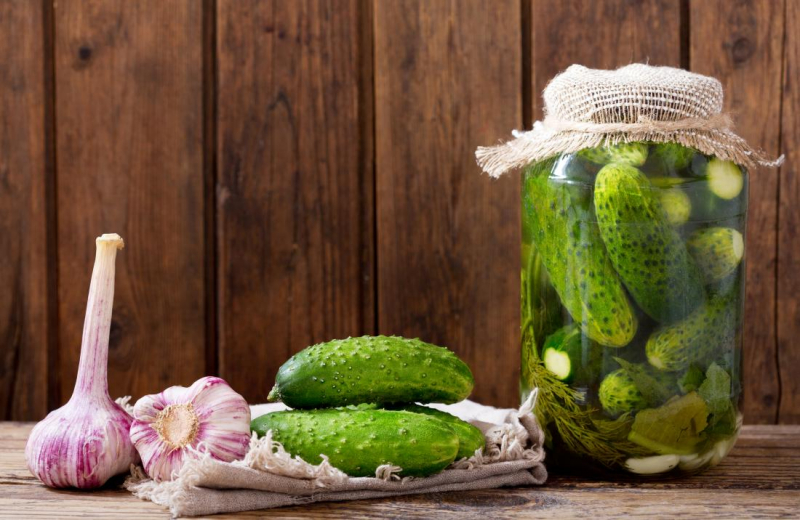Pickles

Pickles are foods that are preserved in a low pH solution, according to most definitions. This indicates that they are most likely sour in flavor. Because there are several different ways to make things sour, this may cause uncertainty about what pickles are. Taking the product you want to preserve and placing it in a vinegar solution is one of the simplest ways to make pickles. Pickling vinegar, for example, has a pH of roughly 2.4, as everyone knows.
Yes, pickles are high in vitamin K, with 109 percent of the daily value per cup. There are, however, certain drawbacks. To begin, these measurements are for sweet pickles, such as the bread and butter variety that you may see on a sandwich. Sugar content is very high – 45 grams per serving! And one cup of pickles is a lot of pickles. One sweet pickle (much easier to eat) provides 22 percent of the daily value for vitamin K.
Pickles, like most vegetables, are almost entirely made up of water and contain very little fat or protein. Because the salty brine sucks the water out of the pickles, they have a high vitamin concentration. Depending on the type, they have different nutritional values. A whole dill pickle, for example, contains about 20% of the daily recommended amount of vitamin K, which helps your blood clot and keeps your bones strong, or 6% of the calcium adults require for strong bones and teeth and healthy nerves, or 6% of your daily potassium requirement, which keeps your nerves working properly...











